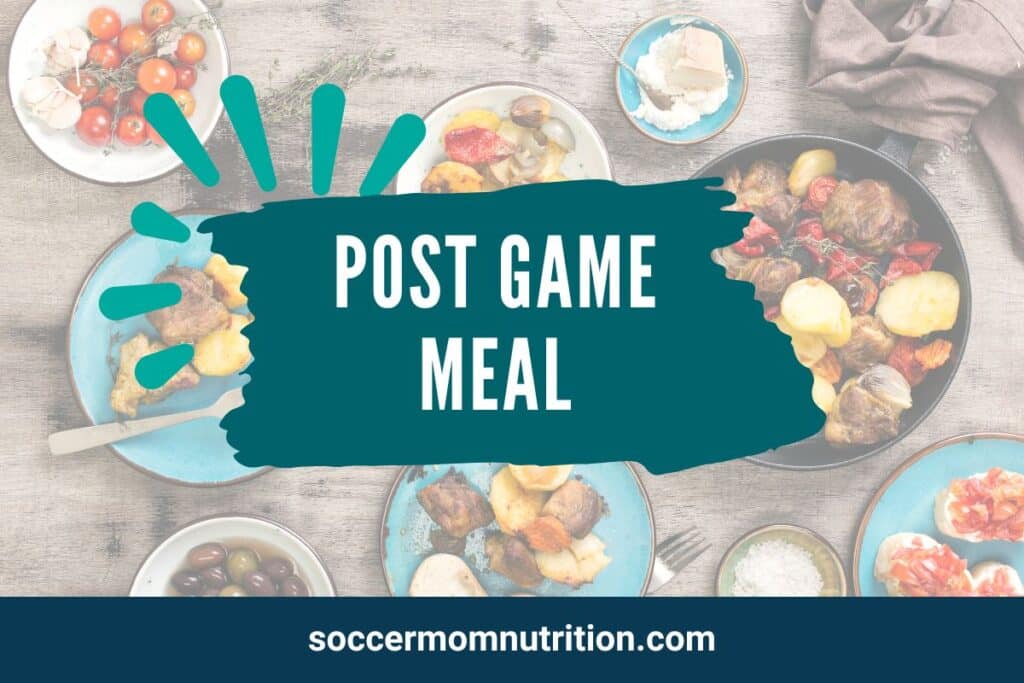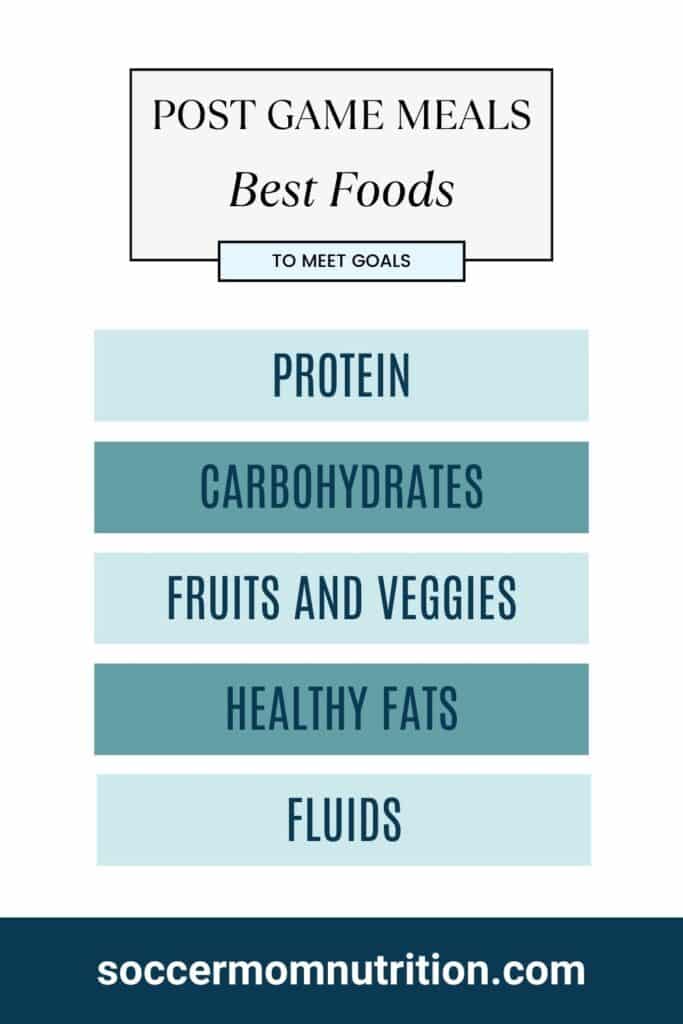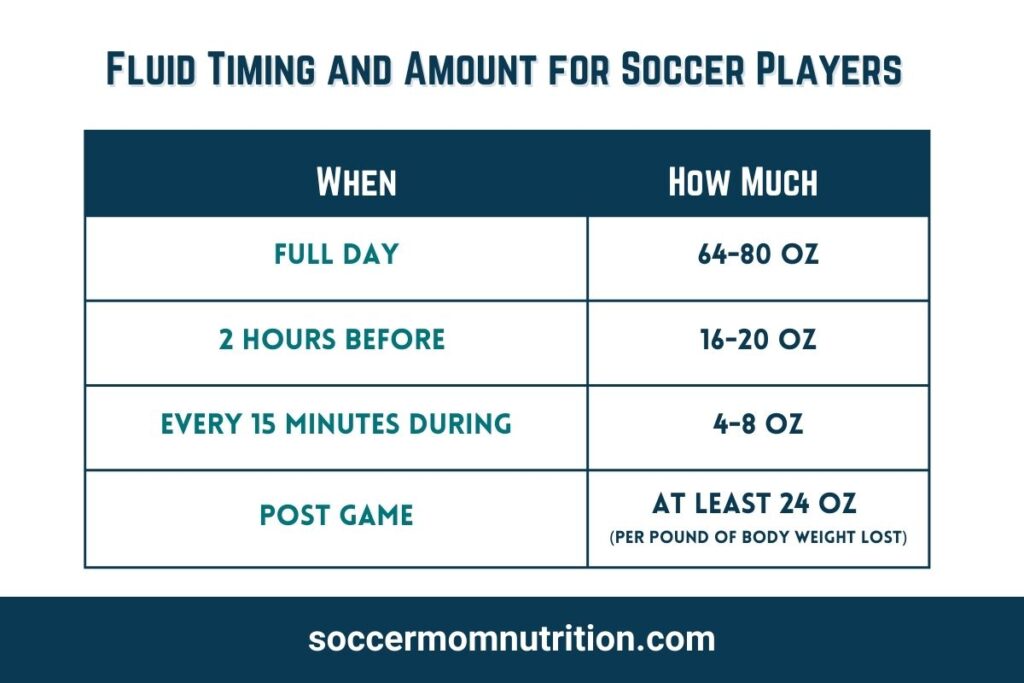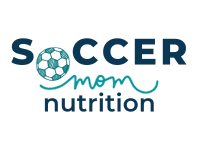Post Game Meal Ideas: How to Recover Faster and Stronger
You know how important it is to fuel your body before, during and after the game. But do you know what post game meal to eat to optimize your recovery and sports performance?
In this post, we will share some post game meal ideas that can help you replenish your energy, repair your muscles and rehydrate your body.
We will also answer some common questions about post game nutrition and recovery.

3 main goals of the post-game meal
The 3 main aims of the post-game meal are to:
- Replenish fuel stores: Carbohydrates replenish depleted glycogen stores, the body’s primary energy source during exercise.
- Muscle repair and growth: Protein supports muscle repair and growth, aiding in recovery and preventing muscle breakdown.
- Rehydration and electrolyte replenishment: Fluids and electrolytes replace lost fluids and minerals, aiding in rehydration and maintaining optimal body functions.
Therefore, eating a post game meal is an essential part of recovery for athletes who play sports. By following the tips and ideas in this post, you can optimize your recovery and performance for the next game.

What is the best food to eat after a game
The best food to eat after sports depends on several factors, such as the type, duration, and intensity of the game, your personal preferences, and availability of food.
However, you can use the performance plate method for a general guideline to building a post game meals. The best example of a post game meal has a balance of protein, carbohydrates, health fats, color and fluids.
1. Protein
Aim for 20 to 40 grams of protein per post game meal, depending on your body weight and activity level.
Protein sources include lean meats, poultry, fish, eggs, dairy products, tofu, tempeh, nuts, seeds, beans and lentils.
2. Carbohydrates
Depending on your energy needs and goals, aim for 1 to 1.5 grams of carbs per kilogram of body weight (a ratio of 3-4 g of carbohydrates per 1 g of protein from high-quality sources) for your post game meal.
Carbohydrate sources include whole grains, fruits, vegetables, starchy veggies, legumes, beans and dairy products.
3. Healthy fats
Choose healthy fat sources for your post game meal. When you add fats to your meal, choose healthy fats such as avocado and olive oils, nuts and nut butters, seeds, avocados and olives.
4. Color
Another important aspect of post game nutrition is including colorful fruits and vegetables in your post game meal.
Fruits and vegetables provide fiber, vitamins, minerals, antioxidants and anti-inflammatory benefits that can help you recover faster after activity.
5. Fluids
Drink enough fluids to restore your hydration status and replace electrolytes. Fluid recovery sources include water, sports drinks, high protein milk, fruit juices, soups, chocolate milk, smoothies, and fruits with high water content such as watermelon.

When to eat a post game meal
Ideally, aim to eat your post-game meal within 30 minutes to 90 minutes after the last whistle.
This is when your muscles are most receptive to absorbing nutrients and when your body is most efficient at restoring glycogen and repairing muscle tissue.
Post game meal strategies for optimal recovery
Athletes can benefit from a two-step approach to post game meal recovery:
1. Immediate Snack
Enjoy a post-game snack and recovery drink right on the field as the game whistle blows.
- Sports bar, granola bar or an energy bar
- Piece of fruit or a fruit cup
- Handful of nuts or trail mix with dried fruit
- Cheese stick or a yogurt cup
- Sports drink
- Chocolate milk
2. Full Meal Within 30-90 Minutes
Follow up the post game snack with a balanced post-game meal within 30 to 90 minutes. This meal should comprise protein and carbohydrate-rich foods along with color and healthy fats. (1)
Balanced post game meal ideas
Here are some of our favorite post game meal ideas that meet the performance plate guidelines with a combination of protein, carbohydrates, color and healthy fats are:
- Turkey and cheese sandwich on whole wheat bread with lettuce, tomato, and mustard, an apple and a glass of milk.
- Greek yogurt with granola and berries, a banana and a glass of orange juice.
- Scrambled eggs with cheese and spinach on a whole wheat tortilla, a slice of whole wheat toast with peanut butter and honey and a glass of water.
- Tuna salad with whole wheat bread, carrot sticks, and hummus, a handful of grapes and a glass of lemonade.
- Oatmeal with high protein milk, almonds, and dried cranberries, a hard-boiled egg and a glass of cranberry juice.
- Chicken noodle soup with whole wheat rolls, cheese slices and green salad with cherry tomatoes, a peach and a glass of unsweetened iced tea.
- Pasta with ground turkey meat sauce and parmesan cheese, a green salad with dressing and a glass of water.
- Veggie burger with whole wheat bun, lettuce, tomato and avocado, sweet potato wedges, coleslaw and a glass of water.
- Lentil soup with whole wheat pita bread, cheese cubes and cucumber slices, a pear and a glass of milk.
- Stir-fried tofu with vegetables and brown rice, a fortune cookie and a glass of green tea.
- Cheese and spinach quesadilla with salsa and sour cream, corn chips, watermelon and a glass of lemonade.
- Peanut butter and jelly sandwich on whole wheat bread, baby carrots and hummus, and a glass of chocolate milk.
- Ham and cheese omelet with whole wheat toast, a kiwi and a glass of water.
- Turkey burger with whole wheat bun, lettuce, tomato, and ketchup, baked fries and a glass of milk.
- Vegetable pizza with cheese and chicken, a green salad with dressing and a glass of water.
- Roasted chicken with roasted vegetables and quinoa, a yogurt parfait with granola and berries.
- Lasagna with lean ground beef, cheese and spinach, a green salad with dressing and a glass of milk.
- Burrito with shredded chicken, black beans, cheese, salsa and sour cream, a side of corn salad and a glass of water.
- Salmon with lemon and dill, roasted potatoes, asparagus, a whole wheat roll, a fruit salad and a glass of iced tea.
- Roast beef with gravy, mashed potatoes, carrots, and peas, a slice of apple pie and a glass of water.
- Vegetable curry with chickpeas, tofu, and coconut milk, served over basmati rice, a mango lassi and a glass of water.
Prioritize post game hydration
Hydration is key for your recovery. Alongside your post-game meal, prioritize fluid intake. Opt for water, sports drinks or coconut water to replenish lost fluids and electrolytes.
Benefits of post game hydration
- Prevent dehydration: dehydration can impact your physical and mental performance, increase your risk of heat illness, cause headaches, nausea, dizziness, cramps and fatigue.
- Maintain blood volume: blood volume affects your blood pressure, heart rate, oxygen delivery, waste removal, temperature regulation and nutrient transport.
- Replace electrolytes: electrolytes are minerals that help regulate fluid balance, nerve impulses and muscle contractions. You lose electrolytes through sweat and urine during sports.

Replace electrolytes
Incorporate salty foods post-game to replace lost electrolytes. You can have these at the field paired with water or a sports drink or as a quick post game snack until you can get a post game meal.
Some examples of salty foods that can help you replace electrolytes are:
- Salted pretzels or popcorn
- Pickles or olives
- Cheese or cottage cheese
- Salted nuts or seeds
You can use our sweat rate calculator to figure out how much you need to drink post game. A good rule of thumb is to drink around 24 oz for every pound of body weight lost to sweat.
Final thoughts
Eating a post-game meal is an essential part of recovery for athletes who play sports.
Consistent post-game sports nutrition enhances your overall athletic performance by promoting sustained energy levels, reducing the risk of injuries and aiding in muscle development.
Remember to eat a balanced meal that contains protein, carbohydrates, fiber, vitamins, minerals, antioxidants and fluids within 30 to 90 minutes after the game.
Also remember to follow the 4 R’s of recovery: replenish, repair, rehydrate, and rest.
And don’t forget to hydrate yourself well before, during, and after the game by drinking enough fluids and eating some salty foods.
Additionally, check out our posts on team dinners and dinner meals for more ideas or post game dinner ideas.
Plus when you have an early morning game, we’ve got ideas for what to eat after a morning activity.
Stephanie Magill, MS, RD, CD, FAND has over 22 years of experience in public health and nutrition. As a performance registered dietitian nutritionist, Stephanie specializes in sports nutrition and provides simple and actionable information so that athletes can be well fueled for high performance on and off the field. Stephanie has a Master’s Degree in Nutrition and is a Fellow of the Academy of Nutrition and Dietetics.

